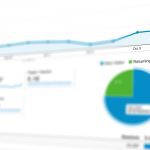Todays customers are socially driven and more value conscious than they were ever before. Believe it or not, everyday customer interactions create a whopping 2.5 exabytes of data, which is equal to 1,000,000 terabytes, and this figure has been predicted to grow by 40 percent with every passing year. As organisations face the mounting challenges of coping with the surge in the … [Read more...] about Corporate Self-Service Analytics: 4 Questions You Should Ask Yourself Before You Start
Big Data
Learn everything you need to know about big data. Find out how companies are using this revolutionary technology and what it means for your business strategy.
Five Ways How Big Data is Applied in Russia
Everybody heard about Big Data, but a relatively small number of people knows what it means and how we can actually use it. Those who know can build their business around Big Data to optimize the spendings and forecast the behavior of their clients. The meaning behind Big Data The amount of digital data is growing every year. According to IBS the total number of data stored in … [Read more...] about Five Ways How Big Data is Applied in Russia
The Role and Impact of Big Data on the Banking & Finance Sector
Technology has a lot to play in the evolution of the Banking & Finance Industry in the last one to two decades. The service and the way the banks operated have advanced to make life easier for both the customers and the banking professionals. When the Big Data Revolution hit the various industries, the banking industry realised the opportunity avenues associated with it. … [Read more...] about The Role and Impact of Big Data on the Banking & Finance Sector
Future-Proof: Data-Driven Marketing’Predictions for 2017
We recently spoke with Daniel Cantorna, Head of Data Products at ICLP, to give us his insights with regards to the future of big data in 2017 and his specialty which is data driven marketing. Daniel has worked on marketing automation programmes and has architected solutions to collect, store and understand customer data, as well as having created several data products that … [Read more...] about Future-Proof: Data-Driven Marketing’Predictions for 2017
6 Reasons Data Analytics Will Make a Splash in 2017
There is no doubt about it. Millennials, unlike previous generations, love self-service options. They want the freedom to customize orders, change account information, and find answers to their questions without intervention from a middle man. Think of them as the first demographic who prefers navigating automated phone systems over speaking to a real person, at least most of … [Read more...] about 6 Reasons Data Analytics Will Make a Splash in 2017
What is big data?
Big data is a term that refers to the massive amount of digital data created and shared every day. Big data can transform how we live, work, and communicate. It can be used to improve everything from public health and urban planning to business and marketing.
Big data is also changing the way we think about privacy and security. The volume, velocity, and variety of big data present challenges and opportunities for organizations and individuals. Regardless, big data is here to stay, and its impact will only continue to grow in the years to come.
What is big data analytics?
Big data analytics is the process of turning large, complex data sets into actionable insights. Businesses use various analytical tools and techniques, including machine learning and statistical analysis, to do this.
Big data analytics can be used to improve decision-making in areas like marketing, operations, and customer service. It can also be used to identify new business opportunities and optimize existing processes. With the help of big data analysis, businesses can gain a competitive edge by using their data better.
Want to learn more about big data? Datafloq has courses available. Contact us to get started.
When was big data introduced?
The term big data was coined in the 1990s, with some giving credit to John Mashey for popularizing the term. However, the concept of big data has been around for much longer.
Where does big data come from?
In the early days of computing, scientists and businesses began to realize that the amount of data being generated was increasing exponentially. As a result, they began to develop new methods for storing and processing data.
Over time, these methods have become increasingly sophisticated and have played a key role in enabling businesses to make sense of vast amounts of information. Today, big data is used in various industries, from retail to healthcare, and its importance is only likely to grow in the years to come.
What are examples of big data?
One of the most common examples of big data is social media data. With over 2 billion active users, Facebook generates a huge amount of data every day. This includes information on user interactions, posts, and even location data. Analyzing this data can help companies better understand their customers and target their marketing efforts.
Another example of big data is GPS signals. These signals are constantly being generated by devices like cell phones and fitness trackers. When combined with other data sets, GPS signals can be used to provide insights into everything from traffic patterns to human behavior. Finally, weather patterns are another type of big data set. By tracking these patterns over time, scientists can better understand the impact of climate change and develop strategies for mitigating its effects.
How do companies use big data?
Companies use big data in marketing, product development, and customer service. By analyzing large data sets, businesses can identify patterns and trends that would be otherwise difficult to spot. For example, a company might use big data to track customer behavior patterns to improve its marketing efforts.
Alternatively, a company might use big data to improve its products by identifying areas where customers are most likely to experience problems. For instance, big data can be used to improve customer service by finding pain points in the customer journey. Ultimately, big data provides companies with a valuable tool for gaining insights into their business operations.






